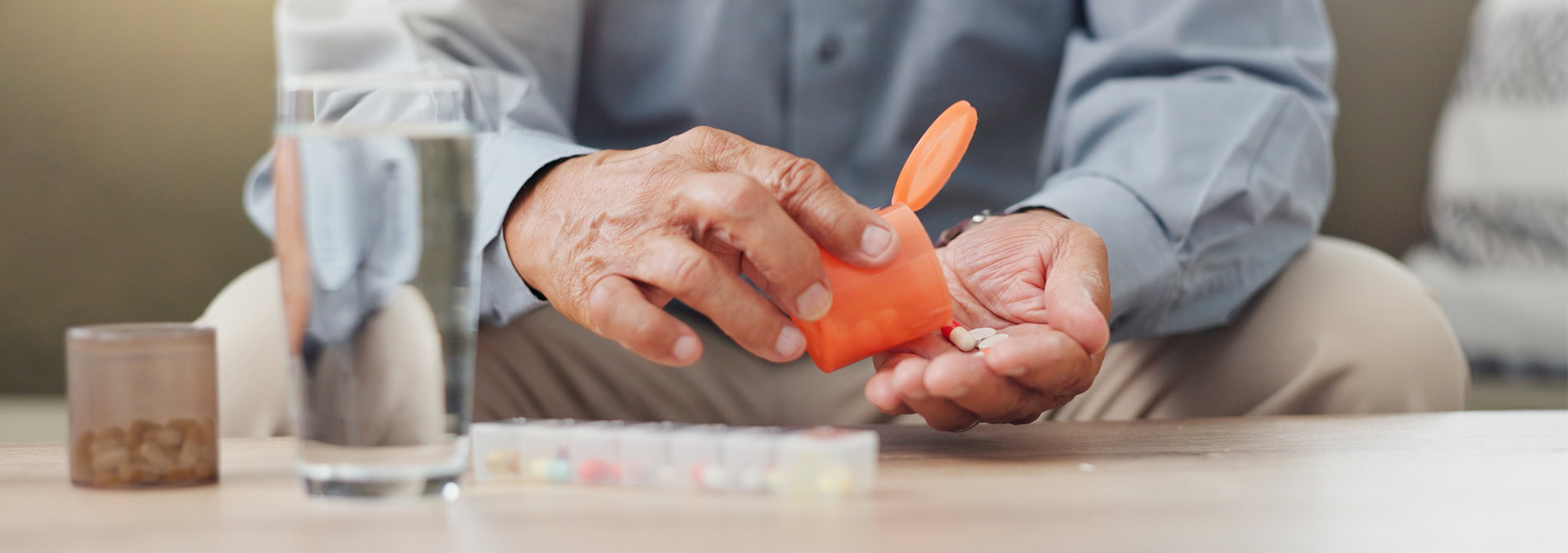For someone diagnosed with obsessive-compulsive disorder (OCD), the potential for developing a substance use disorder as well can be a significant concern. It’s important to understand how these two disorders connect and what may be the outcome.
We’ll explain their relationship, spotlight some of the symptoms and effects of OCD, and introduce ways to treat the OCD along with an addiction.
Obsessive-compulsive disorder (OCD) is an anxiety disorder and can increase the chances of a person developing a substance use disorder. They use repetitive and compulsive behaviors to respond to their anxiety. These rituals may provide short-term relief only.
If you or a loved one need help, call our admissions team today at 561-841-1033.Someone with OCD may isolate themselves from others and becomes at-risk for additional mental health concerns, including depression. Treatment for both OCD and addiction can occur simultaneously to help a person learn to manage OCD with healthy strategies while they work on recovery goals.
What is OCD and how can it increase the chances of addiction?
OCD is a condition that dramatically affects the thoughts and behaviors of a person. Instead of feeling like choice, behaviors are more like an irresistible urge. Obsessing about particular thoughts is repetitive and consumes a lot of time and mental energy. It can lead to behaviors and rituals that interfere with functioning at school or work and affect social relationships and much more.
A person with OCD uses behaviors as a way to respond to anxiety or emotional distress. They may repeat activities, even when they know doing them isn’t actually helping and may be irrational. Fear is another motivator for the behaviors of someone with OCD. They may be influenced by a fear of harming themselves or others, a fear of illness, or a fear of losing something important.
The presence of OCD—even without a diagnosis—can cause someone to isolate themselves from others at an early age. They may feel disconnected and distressed and begin to use drugs or alcohol as a way to cope with those feelings. As their fears and obsessions consume more of their time, they may find it difficult to develop or maintain any social relationships.
Depression may develop as a result of isolation and overwhelming fears. If so, a person with OCD may begin to make drinking or drug use one of their compulsive behaviors. As their use of substances increases, the chance of developing an addiction increases.
Symptoms and Effects of OCD
The signs of OCD are difficult to mask completely. This is why people with OCD may cut themselves from others socially so symptoms and effects are not noticeable. You may have already seen some of the signs of OCD in people you know but weren’t aware of exactly what you were observing.
In the following section, we’ll introduce some obsessions and compulsions related to OCD. It’s important to point out that a type of topic alone doesn’t qualify it as being related to OCD. An obsession with the topic and the behavior that it leads to are the critical pieces here.
Obsessions and Compulsions Related to OCD
Obsessions: While a full list may be infinite, the following samples can give you some clues about what the object of obsession may be for a person with OCD. These examples may come up as topics of conversation or may influence how someone sees themselves and the world around them. Getting acquainted with them and noticing patterns in how they get mentioned can be helpful.
- Certain numbers
- Good vs. Evil
- Personal illness or injuries
- Health of loved ones
- Germs
- Specific places, people, possessions
- Individual memories
Compulsions:
- Moving objects to make them symmetrical
- Arranging the order of items
- Handwashing, showering, and other personal hygiene behaviors
- Counting in a repetitive way
- Looking at sexual images or words
- Avoiding unclean environments/cleaning
- Checking and rechecking objects/items so they’re not lost
- Repeating a behavior a specific amount of times
- Hoarding unnecessary items
- Collecting irrelevant or unexplained items
How to Treat the OCD behind the Addiction
A dual diagnosis program is a valuable approach to treating both substance use addiction and obsessive-compulsive disorder. Individual and group therapy, as well as holistic wellness activities, can begin to equip a person with OCD with alternatives to ritualistic-type behaviors.
Also, accommodations can be made to allow a patient to continue certain behaviors while they learn how to manage their response to anxiety overall.
The aim of treatment for OCD is addressing the fear behind the behaviors. Behavioral interventions, such as cognitive behavioral therapy, offer opportunities to look at patterns of thinking and behavior that haven’t been helpful. Then, a person can learn how to replace these habits with productive responses that don’t involve repetitive behavior or substance use.
Building a network of support is another important part of a treatment plan. A patient benefits from having family members who understand the effects of OCD and how it contributed to a substance use disorder. A patient also benefits from spending time with peers who experience the same symptoms of OCD and have been affected by addiction as well.
Hanley Center is a well-known care provider offering a range of treatment programs targeting the recovery from substance use, mental health issues, and beyond. Our primary mission is to provide a clear path to a life of healing and restoration. We offer renowned clinical care and have the compassion and professional expertise to guide you toward lasting recovery.
For information on our programs, call us today: 561-841-1033.




